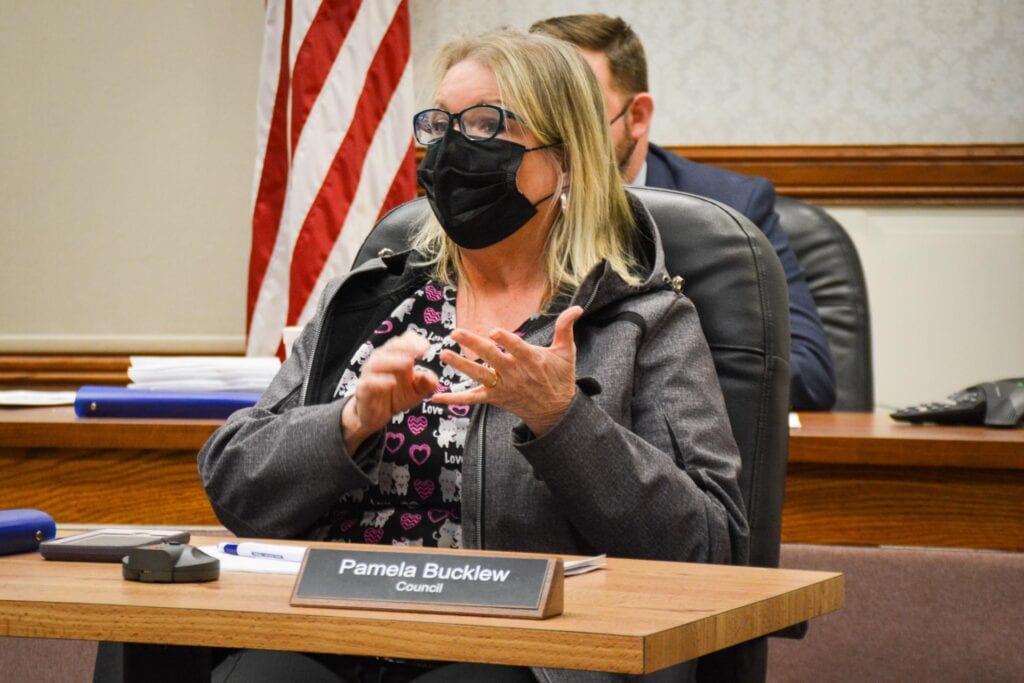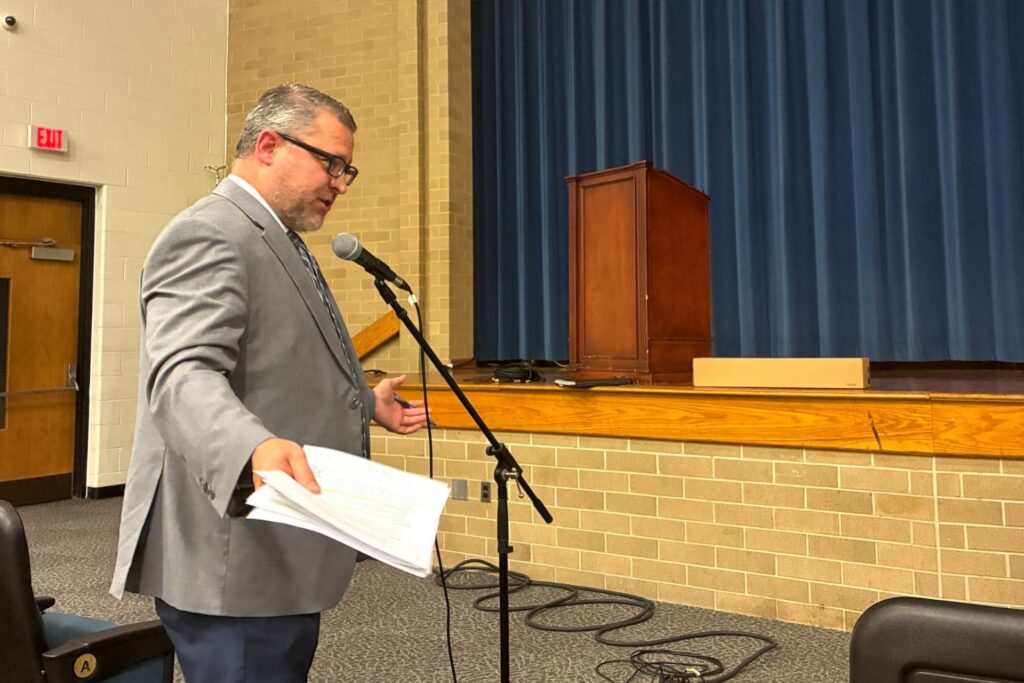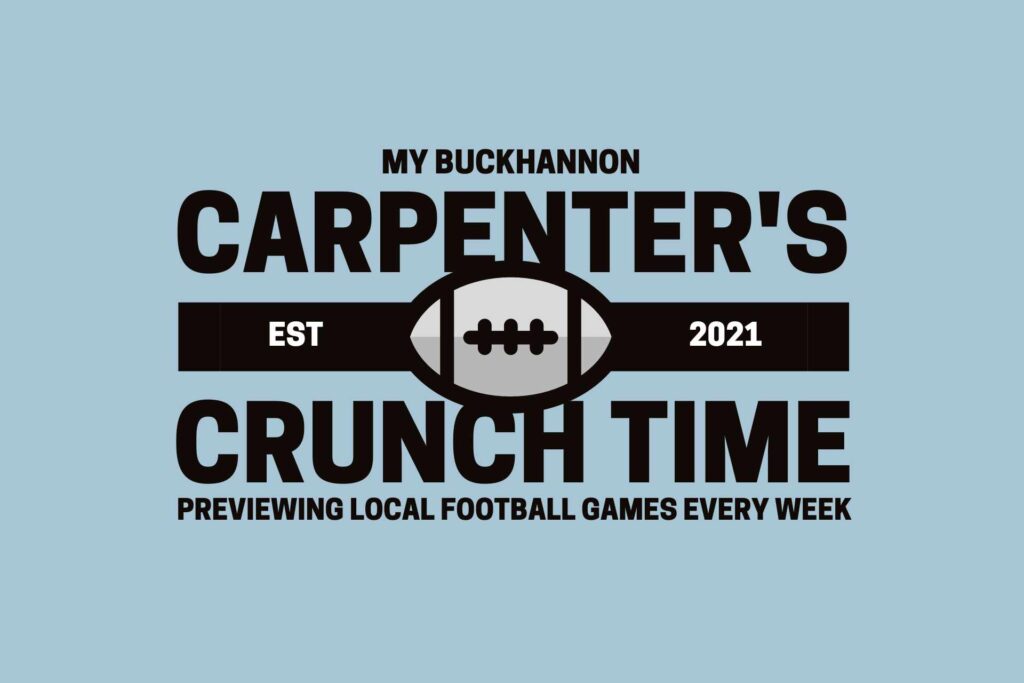BUCKHANNON – Buckhannon City Council said this week it wants to hire an additional three career firefighters to bolster the Buckhannon Fire Department’s response capacity, but exactly how those positions will be paid for is still not clear.
The issue has come up this month – most recently at council’s working budget session Wednesday – as the city prepares its fiscal year 2021-2022 budget, which is due by March 28 to the state auditor’s office.
At council’s Feb. 16 budget hearing, Buckhannon Fire Chief J.B. Kimble made an impassioned argument that as a result of current staffing levels – with two paid firefighters working per shift most days – the city fire department is not able to meet the minimum state and federal safety protocols for fighting a structure fire.
One of those minimum protocols is “two-in, two-out,” meaning two firefighters must be inside the building fighting the fire and rescuing any victims, while two need to be outside ready to rescue them if something goes wrong.
The addition of three full-time firefighters would, in part, bring the city’s general fund budget up to its largest amount ever – roughly $5.3 million.
At Wednesday’s meeting, while council members agreed they want to add the three career firefighters to the city’s payroll, they were less certain of exactly how those positions would be funded. The cost of adding that staffing would amount to roughly $200,000 including salaries and benefits and would increase the number of paid firefighters from six to nine, not including BFD Chief J.B. Kimble.

Council discussed funding the new hires directly from the city’s coffers, which now include the 1 percent sales tax that went into effect in January 2020. Another possibility is implementing a first due fire fee – an idea council members explored during an animated discussion at Wednesday’s meeting.
City fire fees, county fire fees and first due fire fees
The Buckhannon Fire Department’s ‘first due area’ – or primary area of responsibility – encompasses the roughly 54-square-foot area in the BFD’s district that is outside of corporate limits. About 3,300 residential units are located in the BFD’s first due area outside city limits.
Because the fire department frequently responds to calls outside of city limits, council has bandied about the idea of a first due fee as a way of establishing a fixed mechanism for funding not only the three new positions but the Buckhannon Fire Department generally, which is the only fire department in the county staffed 24/7 with paid firefighters.
Currently, county residents pay a flat $25 annual fire fee, which is split between all the volunteer fire departments. Buckhannon residents pay $3 per month that goes to the city department, along with higher taxes to fund the various city agencies, including the BFD, which will have a budget of about $1 million per year with the three new firefighters.
Councilman David Thomas said he didn’t want to dip into the sales tax because he’d rather see those funds pay for much-needed infrastructure improvement projects, such as long-overdue paving.
“I believe very adamantly that the sales tax is going to give the city a much-needed revenue and enhancement and increase to do some things for our infrastructure that I think are extremely needed for the future,” Thomas said at Wednesday’s meeting. He suggested council move about $300,000 to $400,000 in sales tax to the Street Department for paving projects.
Because roughly 40% of the calls the city-funded fire department responds to are outside the corporate limits, Thomas said he thought the Upshur County Commission “needed to take a serious look” at increasing the county fire fee and encouraged council to consider implementing a first due fee.
“I also think the first-due [area] residents have been supported by the residents in the city, and I think it’s time that we have a first due fee … These are discussions we need to have as a city council – what are the pros, what are the cons – but I’m very protective of the sales tax [being used] to make up for infrastructure enhancements we haven’t done for years,” Thomas said.
Thomas said both the $36 a year that city residents pay is too low, and the $25-per-year fee county residents pay to fund seven separate fire departments is “ridiculous.”
Buckhannon Mayor Robbie Skinner on Wednesday said that based previous conversations with commissioners, he believed the county was hesitant to raise the countywide fire fee.
“From a county commission standpoint, as you would imagine, they have significant concern about it because of the potential hurt that it would put on the residents,” Skinner said.
However, when My Buckhannon reached out to the commission the day after the Feb. 24 meeting, they expressed a willingness to consider raising the $25 fee.
In an emailed statement Friday, the commission noted that the $25 fee had remained unchanged since 2001 and acknowledged it might be time for an increase.
“The fire fee charges a tiered annual fee of $5 (vacant parcels), $25 (residential buildings) and $50 (commercial buildings) for properties located outside of the municipal limits. This annual fee ensures fire response in all of Upshur County and also dramatically decreases property owners’ fire insurance premiums,” the commission wrote in a joint statement. “As with everything, the cost of providing fire service has significantly increased over the last 20 years. The Commission agrees with City Council; these fees are outdated and no longer meet the financial needs of the fire departments.”
The statement went on to say that the commission is not in favor of a first due fee but is open to meeting with city council to discuss other options.
“As we understand, this has led the City Council to explore options of a first due fire fee,” the statement reads. “Rather than implementing a first due fee that would potentially cause the other departments to close their doors, the Commission would like to move forward with discussing an increase with the City Council that would provide adequate funding to all volunteer departments within the county.”
“The Commission looks forward to meeting with City Council regularly beginning in the near future to discuss the possibility of this increase and a united path forward for the protection of all City and County residents,” it continues.
Arguments for and against first due fire fees
At Wednesday’s budget meeting, prior to the commission releasing its statement, councilman CJ Rylands said he thought sales tax was a less reliable form of funding than a first due fee and would put fire department funding at the mercy of the private businesses.
Rylands said a permanent long-term funding mechanism needs to be created.
“Anything else is a half-measure, a temporary measure,” Rylands said. “To me taking the money out of sales tax [is risky] because sales tax could be dramatically impacted by loss of one business. The foundation needs to be stable.”

“I think we need to examine a first due fire fee and just do it, and we could have it in place by July 1,” he continued. “Is it going to be problematic? Yes, but at this point in my life, I’m looking for solutions. I’m not looking to make a political decision. I’m sure I may have less customers because of it, and it’s going to cost me a significant amount of money, but if it’s the right thing to do, we should do it without fear of consequences.”
City attorney Tom O’Neill, who lives outside city limits in the first due area and serves on the county Fire Board, said a first due fee could set off a domino-effect series of events.
“Dave’s (Thomas) point about the city subsidizing fire service in the unincorporated first due area is a fair point, but the other side of that coin is that that first due area – and I live in that area – is going to significantly impair the appropriations the fire board is able to make to all of the other departments in the county, because just as the city subsidizes the first due fire service in the unincorporated first due area, that unincorporated first due area subsidizes fire service for the rest of the county, and it’s a series of dominoes that are going to fall.”
O’Neill said he believes more residents live in the first due area that in any other unincorporated area of the county.
“As your counsel, the city has the power to do this, but there are going to be consequences to that,” O’Neill said. “There are consequences to doing it, and there are consequences to not doing it.”
Kimble said he doesn’t want to hurt volunteer county departments. In his budget presentation to council, the fire chief highlighted several models of collecting fire fees current in use in nearby cities and counties, some of which are based on number of residents in a household, square footage, and whether the property is residential or commercial.
Councilwoman Pam Bucklew suggested council focus on taking care of the public safety concerns of city residents first and tackle the first due fee in a more gradual, methodical manner.
“Sales tax was to fund, in part, emergency services,” she said, “and it is our obligation to take care of our citizens first, so I don’t see why we can’t hire the three firemen, and in the meantime, start [the process] for the first due fees.”
“Here’s the thing – their calls are going up all the time, constantly, and they’re having to deal with the drug overdoses and giving Narcan and whatever else, and we’re very fortunate that we’ve never had two big emergencies at one time,” Bucklew added.
Skinner said two major emergencies almost did occur fairly recently.
“We almost did have it — the night that there was what turned out to be a small smolder behind Stone Tower Brews, two of our guys were in [another county fire department’s] district putting out a car fire because that department didn’t show up, and then we have a call on Main Street right here,” the mayor said.
City recorder Randy Sanders said that regardless of how city officials proceed, he wants council to approach any meetings with the commission with open minds.
“I’m adamant about us doing everything we can to work together with the county commission,” Sanders said. “We have to – there’s been too much animosity between the two ends of the street, which is ridiculous. We have to approach it in an amicable fashion with positivity. We can’t walk in there assuming we know what they’re going to say; we’ve all got to roll up our sleeves and go to work.”
Council plans to hold at least one more working session prior to considering its general fund budget at its regular March 18 meeting.














